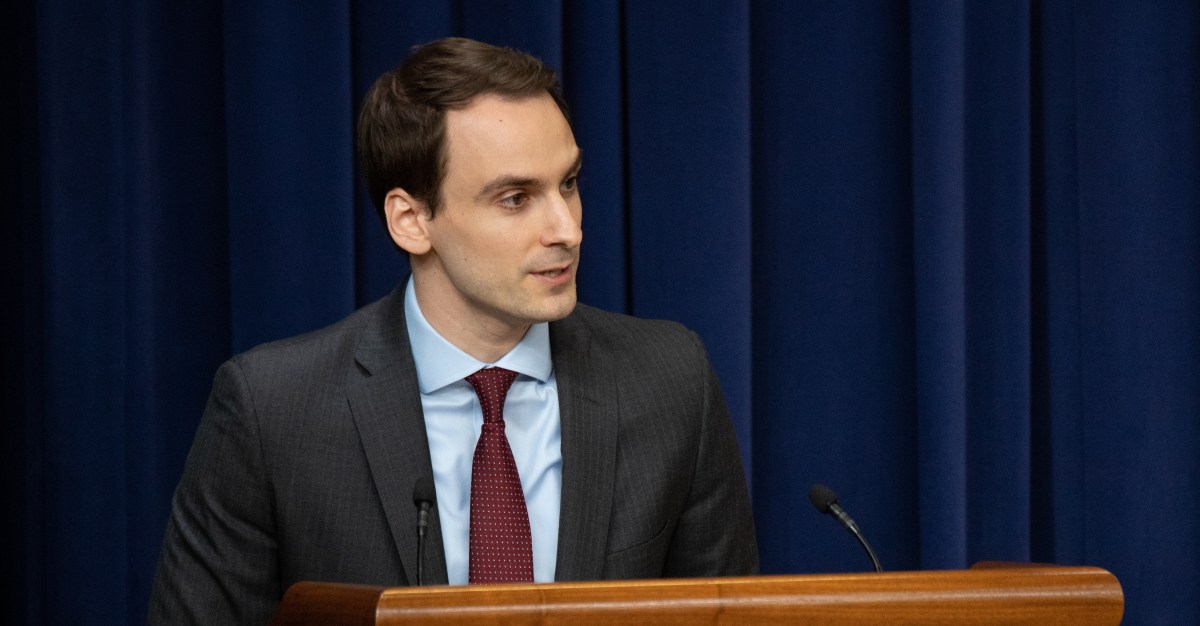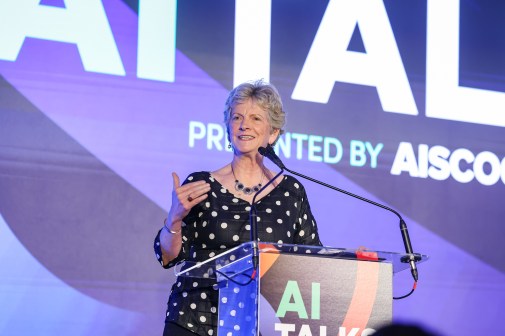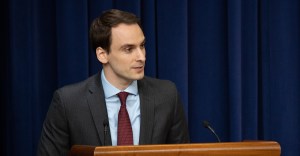White House continues push for public-private collaboration on AI

The Trump administration wants to leverage a coalition of the public, private and academic sectors to ensure the U.S. has the lead in artificial intelligence development.
Michael Kratsios, U.S. deputy CTO and the current de facto head of the Office of Science and Technology Policy, said that while the administration is pushing for agencies to make AI a priority in their research and development spending, it also wants to partner that with the private sector and academia to help outpace competitors like China on development.
“I’m always going to bet on the American innovation ecosystem,” he said Tuesday at the U.S. Chamber of Commerce’s AI Summit. “What has made the United States an engine or the home for the greatest technological innovation over the last 100 years? My answer to that is our R&D ecosystem. What is our ecosystem? It’s one part federal funding, one part private sector and one part academia.”
To help drive that ecosystem, the Trump administration is pushing for agencies to spend more R&D dollars to help drive basic research breakthroughs in AI, a technology that could have a near-limitless impact.
“The federal government spends about $150-plus billion a year on R&D and it’s critical that we prioritize AI as a research area,” he said. “So actually getting agencies to be allocating dollars towards a specific research area is a little trickier than you would imagine. The best to do that is you have to send very strong signaling from the White House to agencies that they should be thinking or prioritizing AI.”
Kratsios said the fiscal 2019 budget, as well as the Office of Management and Budget’s memo of the fiscal R&D priorities, laid out the administration’s game plan on spotlighting AI. Now agencies are starting to develop their investments, including the June debut of the Summit supercomputer at Oak Ridge National Laboratory in Tennessee.
That innovation also has to be matured through a cyclical cooperation with the private sector, the deputy CTO said. So the White House is also looking at streamlining the federal regulations in areas that could present barriers to emerging technology innovation, such as the Federal Aviation Administration’s rules on drone use.
But while the private sector can drive breakthroughs on the application side of R&D, Kratsios added that the federal government has to be the leader in promoting basic research into the core concepts behind AI technology by leveraging its national labs and providing research funding to the nation’s colleges and universities.
“Our greatest inventions don’t happen because the president or an agency, by edict, decide that we shall do this. It is a collaborative, creative, free and open environment for scientific discovery,” he said. “You kind of see this zig-zag of progress through technology. It’s done through the creative, innovative spirit of America, rather than this top-down, heavy-handed industrial approach. For us, that’s what we are kind of doubling down on.”
In May, Kratsios and the White House hosted a meeting with industry and academic stakeholders to discuss the future and promise of artificial intelligence.





